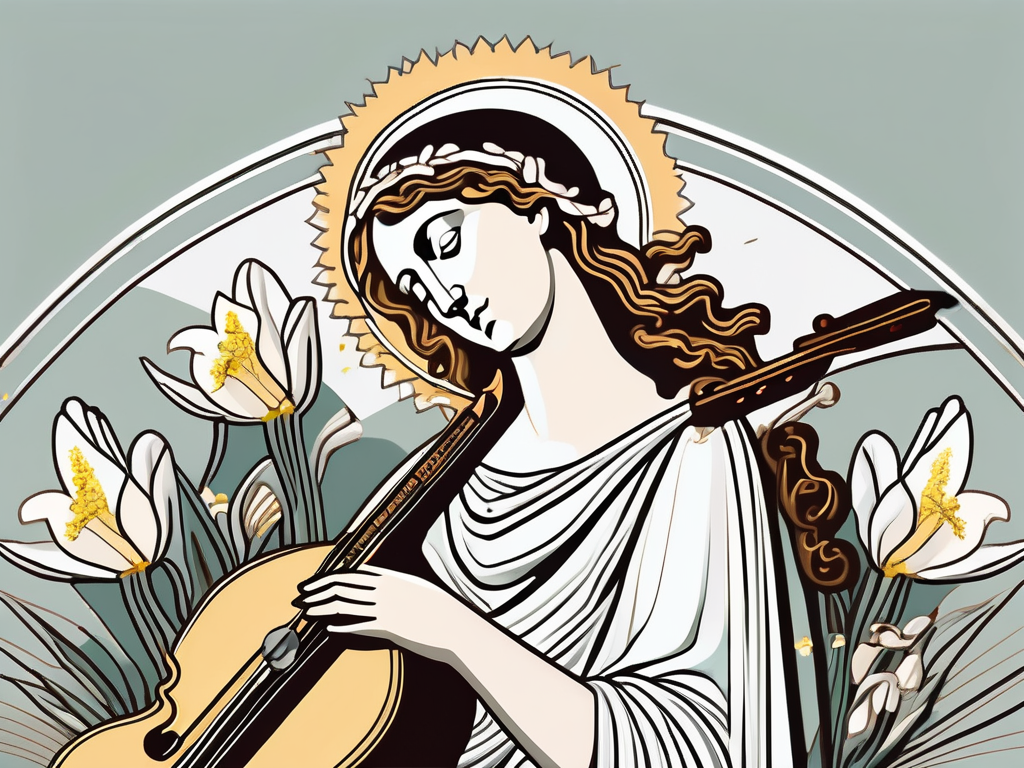Saint Louis IX, also known as King Louis IX, was a remarkable figure in history who left an indelible mark on France and the world. He was born into a noble family on April 25, 1214, in the Château de Poissy. Louis IX came from a dynasty of influential rulers, and his upbringing prepared him for the challenges that lay ahead.
Education played a crucial role in shaping the young Louis. His mother, Blanche of Castile, was a devout Catholic who instilled in him a strong religious foundation. Under her guidance, he received an excellent education, learning about philosophy, literature, and theology. These formative years would shape his character and later influence his reign as king.
Ascension to the Throne
In 1226, tragedy struck the royal family when Louis IX’s father, Louis VIII, succumbed to illness. At just 12 years old, Louis IX ascended to the throne. The political climate during this time was tumultuous, and the young king faced numerous challenges. He had to navigate power struggles among the nobility and assert his authority as the ruler of France.
Despite these challenges, Louis IX proved himself to be a wise and capable leader. He implemented various reforms to strengthen the monarchy and ensure justice for all citizens. His reign marked a period of stability and prosperity for France.
During his early years as king, Louis IX faced the daunting task of consolidating his power and establishing himself as a legitimate ruler. The nobility, always eager to assert their own influence, posed a significant threat to his authority. Louis IX, however, was not one to be easily swayed. He skillfully navigated the treacherous waters of court politics, forging alliances and carefully managing rivalries. Through his determination and political acumen, he was able to assert his authority and establish himself as the true ruler of France.
One of the key reforms implemented by Louis IX was the establishment of a centralized judicial system. Prior to his reign, justice in France was often arbitrary and inconsistent, with different regions and nobles enforcing their own laws. Louis IX recognized the need for a fair and impartial legal system that would ensure justice for all citizens, regardless of their social status. He established a network of royal courts and appointed trusted judges who would administer justice according to a standardized set of laws. This reform not only brought stability and consistency to the legal system but also helped to strengthen the authority of the monarchy.
In addition to his legal reforms, Louis IX also focused on improving the lives of his subjects. He invested heavily in infrastructure projects, such as the construction of roads, bridges, and canals, which facilitated trade and commerce. This led to a period of economic growth and prosperity for France, as merchants and traders were able to transport their goods more efficiently. Louis IX also promoted education and the arts, fostering a culture of learning and creativity within his kingdom.
Despite his many accomplishments, Louis IX’s reign was not without its challenges. He faced several military conflicts, both within France and abroad. He led several successful military campaigns, expanding the territory of France and solidifying its position as a major European power. However, these military endeavors also came at a cost, both in terms of resources and human lives.
Throughout his reign, Louis IX remained deeply committed to his faith. He was a devout Catholic and sought to promote religious unity within his kingdom. He sponsored the construction of numerous churches and monasteries, and he personally participated in religious ceremonies and rituals. Louis IX’s piety and devotion earned him the admiration of his subjects and the respect of the clergy.
As the years went by, Louis IX’s reputation as a wise and just ruler grew. His reign became known as a golden age for France, characterized by stability, prosperity, and cultural flourishing. His legacy as a monarch and a statesman continues to be celebrated to this day.
Saint Louis IX’s Religious Devotion
One of the defining characteristics of Louis IX was his unwavering faith and devotion to the Catholic Church. His religious convictions guided his rule, and he saw himself as God’s representative on Earth. This religious zeal influenced his decision-making process and his approach to governance.
Louis IX’s religious devotion went beyond his role as a ruler. He actively participated in religious rituals and ceremonies, attending Mass regularly and taking part in the sacraments. His commitment to his faith was evident in his daily life, as he dedicated time to prayer and reflection, seeking guidance from God in all matters.
His strong faith also led to his canonization and subsequent sainthood. In 1297, Pope Boniface VIII declared Louis IX a saint, recognizing his devotion to God and his virtuous life. This momentous occasion solidified Louis IX’s place in history as a holy figure, forever linking his name with holiness and piety.
Saint Louis IX’s religious devotion extended beyond his personal life and influenced his approach to governance. He believed that his duty as a ruler was not only to govern his subjects but also to ensure their spiritual well-being. He enacted laws and policies that aligned with Catholic teachings, promoting morality and justice within his kingdom.
Furthermore, Saint Louis IX was a patron of the arts and commissioned numerous religious artworks, such as paintings and sculptures, to adorn churches and cathedrals. These artworks served as visual representations of his faith and devotion, inspiring others to deepen their own spiritual connection.
In addition to his religious pursuits, Saint Louis IX was also known for his acts of charity and compassion. He established hospitals and orphanages, providing care and support to those in need. His commitment to helping the less fortunate was rooted in his belief that all individuals were made in the image of God and deserved dignity and respect.
Overall, Saint Louis IX’s religious devotion was a central aspect of his life and reign. It shaped his decision-making, influenced his governance, and inspired others to deepen their own faith. His canonization as a saint further solidified his legacy as a holy figure, forever remembered for his unwavering commitment to God and his people.
Major Accomplishments and Contributions
Diplomatic achievements were among Louis IX’s notable contributions. He skillfully navigated through complex political dynamics, mediating disputes and promoting peace. His efforts to maintain peace within and outside France earned him respect among foreign leaders.
One of Louis IX’s most significant diplomatic achievements was his role in the resolution of the conflict between England and France, known as the Treaty of Paris. Through his diplomatic prowess, he successfully negotiated a peace agreement that ended years of hostility and established a period of relative stability between the two nations. This accomplishment not only brought about a much-needed respite from war but also laid the foundation for future diplomatic relations between England and France.
Furthermore, Louis IX implemented social and economic reforms that benefited the common people. He enacted laws to protect the weaker members of society, including widows and orphans. His commitment to justice and equality left a lasting impact on France and set an example for future rulers.
In addition to his efforts to protect the vulnerable, Louis IX also focused on improving the economic conditions of his kingdom. He introduced policies aimed at fostering trade and commerce, which led to the growth of cities and the expansion of France’s economy. Under his rule, the country experienced a period of economic prosperity, with increased agricultural productivity and the development of new industries.
Recognizing the importance of education, Louis IX also established numerous schools and universities throughout France. He believed that education was a fundamental right and made it accessible to people from all walks of life. This emphasis on education not only contributed to the intellectual and cultural development of the country but also helped create a more informed and enlightened society.
Furthermore, Louis IX was a patron of the arts and sciences. He supported and encouraged artists, writers, and scholars, fostering a vibrant cultural scene in his kingdom. This patronage not only enriched the cultural heritage of France but also attracted talented individuals from across Europe, further enhancing the intellectual and artistic exchange.
In conclusion, Louis IX’s major accomplishments and contributions spanned both diplomacy and domestic reforms. His diplomatic skills brought about peace and stability, while his social and economic reforms improved the lives of the common people. His commitment to justice, education, and the arts left a lasting impact on France and set a precedent for future rulers to follow.
The Last Years and Death of Saint Louis IX
In his final years, Saint Louis IX embarked on his last crusade, driven by his desire to reclaim the Holy Land. However, the crusade did not end as he had hoped, and he fell victim to illness. On August 25, 1270, Louis IX passed away in Tunisia, leaving behind a legacy that still looms large today.
Saint Louis IX’s impact on France cannot be overstated. His legacy resonates through the centuries, with his contributions to French society and his unwavering devotion to his faith. His reign left a lasting imprint on society, shaping the values and ideals that continue to define France.
Legacy and Impact on France
Saint Louis IX’s reign was characterized by fairness, justice, and a commitment to the welfare of his subjects. His dedication to the Catholic Church and the welfare of his people earned him the admiration and respect of the French nation. His reign served as a model for future monarchs, providing a benchmark for virtuous leadership.
Even to this day, the name Saint Louis IX echoes through the halls of history, reminding us of a man whose legacy continues to influence France and beyond. His contributions to diplomacy, social justice, and religious devotion cemented his place as one of France’s greatest kings.
As we reflect on the life and legacy of Saint Louis IX, we are reminded of the power of faith, leadership, and the lasting impact one person can have on the world. His story serves as an inspiration, urging us to strive for greatness and to make a positive difference in the lives of others. The name of Saint Louis IX will forever be remembered as a symbol of nobility, piety, and unwavering dedication to the greater good.












